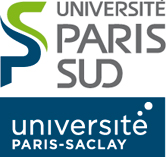Optimal curing policy for epidemic spreading over a community network with heterogeneous population
Time: 14:30 -- Location: LRI, 445
summary: The design of an efficient curing policy, able to stem an epidemic process at an affordable cost, has to account for the structure of the population contact network supporting the contagious process. Thus, we tackle the problem of allocating recovery resources among the population, at the lowest cost possible to prevent the epidemic from persisting indefinitely in the network. Specifically, we analyze a susceptible–infected–susceptible epidemic process spreading over a weighted graph, by means of a firstorder mean-field approximation. First, we describe the influence of the contact network on the dynamics of the epidemics among a heterogeneous population, that is possibly divided into communities. For the case of a community network, our investigation relies on the graph-theoretical notion of equitable partition; we show that the epidemic threshold, a key measure of the network robustness against epidemic spreading, can be determined using a lower-dimensional dynamical system. Exploiting the computation of the epidemic threshold, we determine a cost-optimal curing policy by solving a convex minimization problem, which possesses a reduced dimension in the case of a community network. Lastly, we consider a two-level optimal curing problem, for which an algorithm is designed with a polynomial time complexity in the network size.


